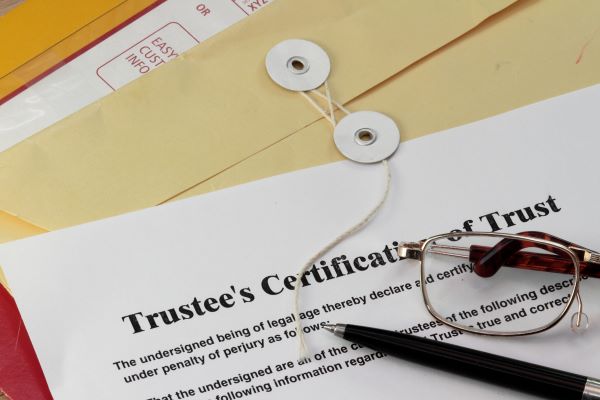There are many people who use trusts, not just the wealthy. In addition to serving many purposes, trusts address specific problems that focus more on family dynamics than on wealth.
- Do you want to keep your affairs private and stay out of probate court?
- Do you have a blended family?
- Do you want to leave money to your favorite charities?
- Do you own a small business and worry about liability?
- Do you have a child with special needs?
- Do you have an elderly parent who might need government benefits?
A well-designed trust holds your most significant assets, protects them, and eventually transfers them to your loved ones. You create the trust and fund it, acting as the trustee during your lifetime or choosing a trustee to manage and administer your funds before and after death. Trustees must provide beneficiaries with regular accountings of investment activity until you pass and your estate is settled. Choosing the right trustee is critical.
Selecting a Trustee
Trustees assume a fiduciary role and must carry out the terms of the trust in the best interest of your beneficiaries. They need experience with estate administration and finances or must hire an advisor. An inexperienced trustee may become overworked and overwhelmed. The wrong trustee can be intentionally uncooperative, abusive, or dishonest, potentially leading to trust litigation.
If a trustee is not fulfilling their duties, beneficiaries can:
- Request copies of trust documents and records of estate transactions.
- Demand accounting of where funds are placed, income earned, and expenses paid.
- Politely ask in writing for required documents within a reasonable timeframe.
- Enlist an estate planning attorney to send a formal letter or assist in resolving disputes.
Miscommunications can sometimes be resolved amicably, but legal action may be necessary if issues persist.
Trust Litigation in Probate Court
Some disputes require formal trust litigation with an experienced estate planning attorney familiar with your state’s trust administration laws. They can evaluate if the trustee mishandled the estate or breached their fiduciary duties. Acting promptly is crucial due to strict time limits and filing requirements.
A trustee’s responsibilities include:
- Open and honest communication with beneficiaries.
- Gathering and properly investing estate property.
- Accurately accounting for all trust property.
If a trustee acts recklessly, loses money, or refuses communication, beneficiaries can seek remedies in probate court. Courts may compel trustee compliance or remove an unfit trustee.
Avoiding Complications in the First Place
Our experienced estate planning attorneys can:
- Design trusts with clear, enforceable terms for trustees.
- Advise you on selecting the most suitable trustee.
- Serve as skilled trustees with knowledge of fiduciary responsibilities.
- Assist trustees or beneficiaries in resolving disputes related to trust administration and litigation.
Need Help Setting Up a Trust or Choosing a Trustee?
We provide personalized guidance, explain relevant state laws, and support you through negotiations or court proceedings if necessary.
We hope you found this article helpful.
If you’d like to discuss your particular situation, please contact our Sherwood or Searcy office at 501-834-2070 to schedule a consultation. We look forward to the opportunity to work with you.

